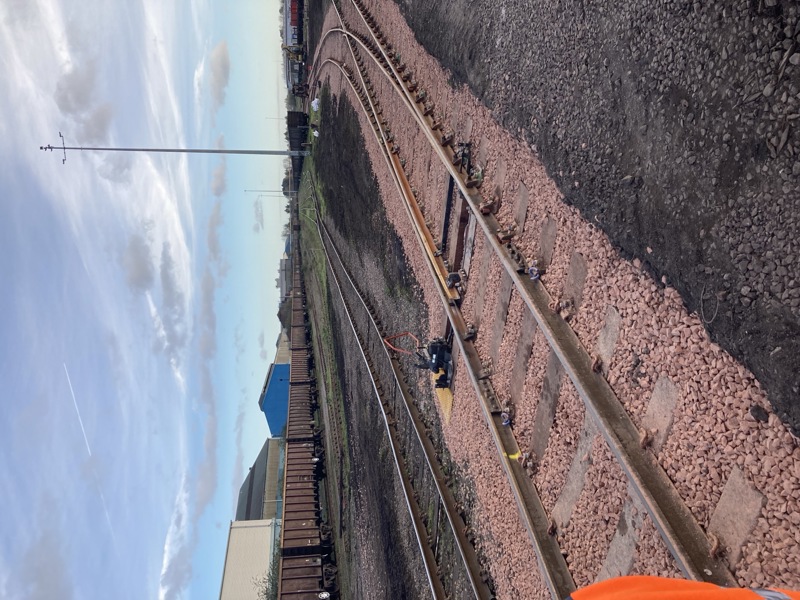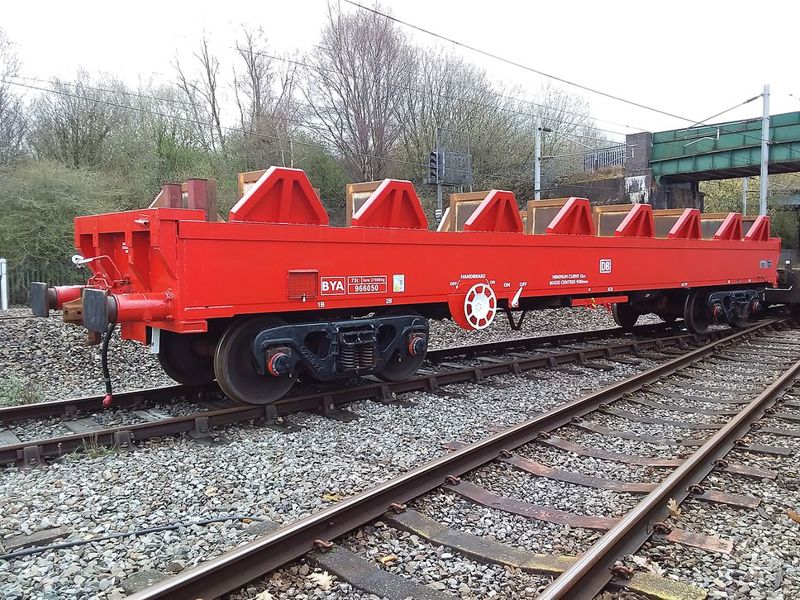
Up to 35 trains a week are set to soon be supplying Port Talbot Steelworks, as it continues to manufacture products following the closure of its blast furnaces.

Up to 35 trains a week are set to soon be supplying Port Talbot Steelworks, as it continues to manufacture products following the closure of its blast furnaces.
The Tata-owned site ceased traditional steelmaking at the end of September 2024, and the company plans to build a greener electric arc furnace (which melts scrap steel) in a £1.25 billion scheme.
However, the project has led to more than 2,000 workers at the South Wales site being made redundant, while coal, lime, scrap and slag trains supplying the site have all ceased.
Tata hopes to have the new furnace up and running in three years. In the meantime, steel slabs are being imported and taken to Port Talbot - primarily from Newport’s Alexandra Docks, but also from Cardiff Docks.
By mid-December, up to 16 trains a week were running from Newport.
Jess Lippett, Network Rail’s Senior Regional Freight Manager for Wales & Western, told RAIL: “When we see it at full tilt, we expect to see 35 loaded trains a week from Newport docks. That’s 70 paths, up to five trains a day, seven days a week.”
The full 70-train path could start in January with additional services from Cardiff, although Lippett described the start date as “fluid”.
He added that the long-term flow has allowed Network Rail to plan for infrastructure work, citing track work in the area around Alexandra Docks Junction as one example.
Traditionally, the Up line from Port Talbot carried the heavier, loaded steel trains taking finished products to customers around the UK.
However, as steel slabs arrive from overseas, the Down line will also be checked and strengthened if necessary to cope with the additional weight.
Work in the area will include accelerating the planned replacement of sleepers and timbers.
Gwynfor Rees, Network Rail’s Performance & Transformation Director for the Wales Route, said: “This, together with replacing old ballast and removal of some rail joints where we can, will reduce the potential for unplanned faults and failures to arise. We are also ordering spare components so that if an issue does occur, we will have materials on-site ready for immediate replacement.”
DB Cargo has also been investing in its Cardiff Tidal depot to support the new requirements.
A new engineering and maintenance shed will be used for the maintenance of wagons used for both Tata and Celsa (the scrap metal recycler).
Track and points at both the Cardiff Docks and Pengam sides of the site have also been replaced, to help reduce the risk of derailments or defects due to the heavy loads they’re required to carry.
DB Cargo UK, in conjunction with its sister company in Poland, is working on a project to convert 60 BAA wagons to carry steel slab, with the first prototype nearing completion at its Stoke depot.

DB Cargo Polska is manufacturing the 40ft steel frames, which are sent to the Staffordshire site for further work and assembly.
Last year, the freight operator completed the conversion of 29 redundant BYA wagons from covered vehicles into open carriers capable of transporting either hot coil or steel slab.
Once the electric arc furnace is up and running, scrap steel will be melted down and recycled, potentially leading to more loaded trains running to and from the site.
“The scrap sourcing strategy is up to Tata, but we will support it,” added Lippett.
“We know there will be a significant amount of scrap.”
Neath Port Talbot Council will decide in early 2025 on Tata’s planning application to build the electric arc furnace.
Login to continue reading
Or register with RAIL to keep up-to-date with the latest news, insight and opinion.


















30hertz - 10/01/2025 22:24
I believe slab trains have also been running from Portbury Dock to Port Talbot.